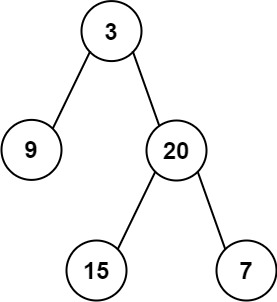DataStructure_Algorithm_HandBook_PreForLeetCode
Given the root of a binary tree, return the sum of all left leaves.
A leaf is a node with no children. A left leaf is a leaf that is the left child of another node.
Example 1:

Input: root = [3,9,20,null,null,15,7]
Output: 24
Explanation: There are two left leaves in the binary tree, with values 9 and 15 respectively.
Example 2:
Input: root = [1]
Output: 0
Constraints:
- The number of nodes in the tree is in the range
[1, 1000]. -1000 <= Node.val <= 1000
class Solution {
public int sumOfLeftLeaves(TreeNode root) {
dfs(root);
return sum;
}
int sum ;
void dfs(TreeNode node){
if(node == null) return;
if(node.left != null && node.left.left == null && node.left.right ==null){
sum += node.left.val;
}
dfs(node.left);
dfs(node.right);
}
}
class Solution {
public int sumOfLeftLeaves(TreeNode root) {
Deque<TreeNode> q = new LinkedList();
if(root!= null) q.offer(root);
int sum = 0;
while(!q.isEmpty()){
int size = q.size();
for(int i = 0; i<size;i++){
TreeNode node = q.poll();
if(node.left!=null && node.left.left == null && node.left.right == null){
sum += node.left.val;
}
if(node.left!=null) q.offer(node.left);
if(node.right!=null)q.offer(node.right);
}
}
return sum;
}
}